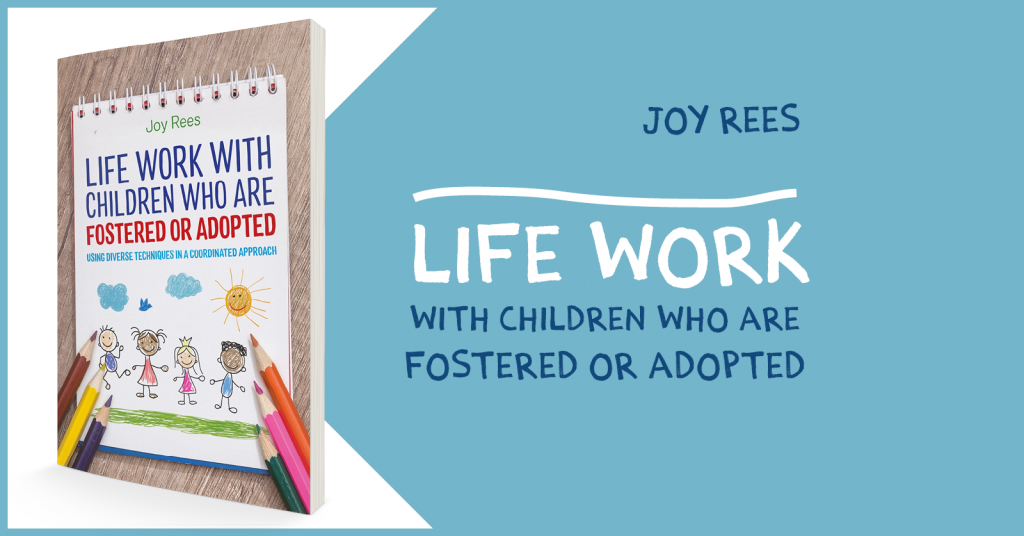 Joy Rees discusses the importance of life work in helping children to understand their personal stories and experiences, but says that too many children’s services lack enough time to carry out this vital work. Her article has been adapted from her new book, Life Work with Children Who are Fostered or Adopted, which emphasises that life work is best achieved using a collaborative approach.
Joy Rees discusses the importance of life work in helping children to understand their personal stories and experiences, but says that too many children’s services lack enough time to carry out this vital work. Her article has been adapted from her new book, Life Work with Children Who are Fostered or Adopted, which emphasises that life work is best achieved using a collaborative approach.
As a social work practitioner, manager and trainer, I have worked directly and indirectly with children in care throughout my career. Most of these children were living with, or about to move to, permanent substitute families. Many were placed years prior to my involvement, and it was with the benefit of hindsight that I began to reflect on the purpose of life work and the effect that this had on the children I met.
I was particularly concerned about the adverse impact, and the poor quality, of some of the life story books I read. Many were confusing and not child-centred. I began to compile these books in a different way and with a different emphasis. My focus was on making them more child-friendly, raising the child’s self-esteem and promoting a sense of security and belonging within their permanent family. This led to the publication of Life Story Books for Adopted Children and, the updated version, Life Story Books for Adopted and Fostered Children.
Over the last decade, I have had the opportunity of sharing my approach with adoptive parents, foster carers and social care providers throughout the UK. It is gratifying to know that ‘the Rees model’, with the present – past – present – future format, has been widely embraced by local authorities. However, from the recent experiences of working with some agencies, it is clear that many professionals are still confused about the wider concept of life work.
The significance of life work is universally acknowledged. There is a general consensus that, fundamentally, it’s about helping children to understand their histories and giving them a sense of identity. However, the quality and quantity of this work varies considerably between local authorities. Some give it high priority and see it as an integral part of the social work brief; they employ staff to specialize in this area of the work and have built up considerable expertise and resources. Others do minimal life work with the children in their care; they have an insular approach and regard it as an extra task, done in a last minute rush, for example, when the child is moving to a permanent placement. Some practitioners see it is a very skilled area of work: something to be provided by an external ‘therapeutic service’, especially when the child’s behaviour has become particularly worrying or challenging.
Life work should lie at the very heart of our involvement with all children in care. But, for some reason, it seems that ‘not enough of this vital work takes place’ (Wrench and Naylor, Life Work with Children Who are Fostered or Adopted, 2013, p.9). Indeed, in some children’s services, little has changed since Nicholls noted ‘the demise in any meaningful life work’, and her observation that it had ‘become an afterthought, something that had to be done only when a child was at the point of moving on to permanence’ (Nicholls, The New Life Work Model, 2005, p.xi). Too many competing demands and lack of time are considered the main obstacles preventing social care practitioners undertaking this all-important work. They cite austerity measures, tighter timescales, increased targets and reduced staffing as the principal problems. Others feel the emphasis on evidence-based practice and providing supporting data depletes the time practitioners have to spend actually interacting with children. Some allude to ‘tick box exercises’ and ‘number games’ and feel the prescriptive qualities limit the scope for innovation, and for the creative and playful activities associated with life work.
My book therefore helps social work professionals, foster carers and adopters to understand the many aspects of life work, and to consider the important contributions they can all make to this task. Life work is about helping children to know and understand their personal stories and the life experiences that have shaped them. Enabling children to reach their potential and achieve the best possible outcome is the common goal, and this is best achieved by using the collaborative approach to life work advocated in this book.
You can use code LIF for a 15% discount when you order Joy’s book before the end of January.
If you would like to read more articles like Joy’s and hear the latest news and offers on our Adoption, Fostering and Social Work books, why not join our mailing list? We can send information by email or post as you prefer. You can unsubscribe at any time.
I am a foster carer and would be interested, all my children have is their memory boxes since they have been with me, Social .workers keep promising but never do any work with them re their past